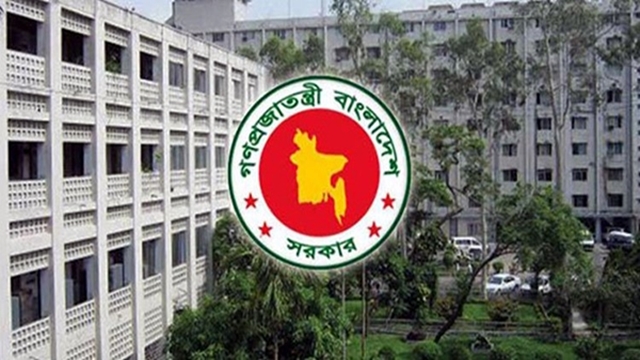12/15/2025

Civil servants likely to get large subsidised home loans
SAM | Published: 2018-02-15 20:57:23

FT ONLINE
The government contemplates doling out around Tk 9.80 billion in annual subsidy to civil servants to help them buy homes, which drew critical appreciation, though.
Sources said the ceiling of home loan for the government employees would also be raised to Tk 7.50 million to the maximum from the previous maximum loan amount of only Tk 120,000, as per the government plan.
A senior official of the Ministry of Finance said that the requisite amount of annual subsidy for them was calculated considering disbursement of Tk 4.0 million as house-building loan each to some 70,000 civil servants at subsidy rate of 3.5 per cent on their loan.
A seven-member committee constituted by the Finance Division under the Ministry of Finance (MoF) prepared a report on the plan recently and sent it to the Cabinet Division for approval.
It assumed availability of housing credits from the commercial banks or financial institutions at 8.5 percent interest for house building of civil servants.
As per the plan a loan-recipient must pay at least 5.0 percent interest, which is equivalent to the existing bank rate, against such housing loan and the government would provide the remaining interest to the commercial banks or financial institutions concerned as subsidy.
The amount of annual government subsidy to civil servants on this account might change with the variation in the number of loan-recipients and the amount of borrowed money, said a senior MoF official.
This planned subsidy to members of the bureaucracy would be in addition to all the already-prevailing facilities and incentives they are receiving, the official added.
The government officials having rank and status of deputy secretary and above are now entitled to car loan free of interest and a monthly maintenance allowance of Tk 50,000 per month.
Employees working in armed forces, state-run entities and autonomous bodies are, however, outside the purview of this financing arrangement, said the official.
Under the plan, the civil servants employed from the bottom 20th grade to upper fifth grade and above would be able to avail the subsidy along with loan facility ranging from Tk 2.0 million to Tk 7.5 million according to their positions and workstations.
According to 2017 statistics, there are over 1.15 million government employees who could avail the house-building loan along with the subsidy under the plan.
"Civil servants can collect the housing loan from any commercial banks or financial institutions and the total loan amount might vary depending on the client and institution's negotiations and relationships but the government would pay subsidy within its proposed ceiling," he said.
Under the plan, interest on the home loans should be charged at a fixed rate, to avoid complexities. The matter could be settled through negotiation with the commercial banks and financial institutions.
The government officials who would require housing loan above the government-fixed ceiling could, however, take additional loan from the commercial banks and financial institutions on the basis of their relationship and negotiations with the lenders but won't get interest subsidy for the additional amount, he added.
"Execution of the plan is necessary to resolve housing problems of government employees," the committee report stated.
The 2015 government pay scale brought about a revolutionary change to the livelihood of government employees but their housing problems remained unresolved, it maintained.
Under the existing rules of 1998, any civil servant who completes service of at least 20 years or reaches the minimum age of 45 is entitled to get house-building loan worth Tk 120,000 to the maximum.
But such a low amount of loan for a civil servant is not logical in the current context, the committee observed.
It would infuse funds in the moribund real-estate sector, the panel viewed about the latest lending scheme for the bureaucrats.
"If implemented, it will help me in purchasing a desired flat," said Shamsul Alam, a senior government official, requesting not to mention his post and position.
He said government employees of different ages would be able to avail the housing loan unlike the existing provision that came into force in 1998, he added.
When contacted, Executive Director of the Policy Research Institute of Bangladesh (PRI) Dr Ahsan H Mansur said introducing a provision of providing subsidy interest to incentvise the civil servants before the forthcoming national elections would cast a bad impact on the country's overall economy.
"The country's existing macroeconomic status does not support such plan," he said.
It would create an extra pressure on the overall economy, which is already in 'imbalance', said Dr Mansur, who worked with the International Monetary Fund (IMF) as a senior economist.
He thinks it would weaken government's economic position and make it vulnerable.
"It would create discrimination in society," he said.
Dr Mansur was also skeptical over arranging such huge loan money for the civil servants by the commercial banks and financial institutions as the latter are already facing financial crisis.
The interest rate might be higher than anticipated, he added.
Editor & Publisher : Md. Motiur Rahman
Pritam-Zaman Tower, Level 03, Suite No: 401/A, 37/2 Bir Protik Gazi Dastagir Road, Purana Palton, Dhaka-1000
Cell : (+88) 01706 666 716, (+88) 01711 145 898, Phone: +88 02-41051180-81